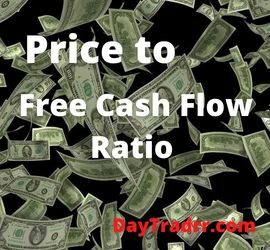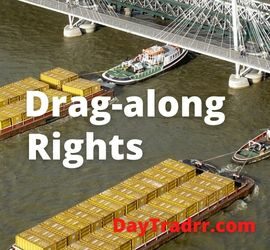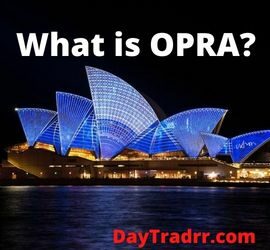What is Price to Free Cash Flow? Price to free cash flow is an equity valuation tool that compares a company’s market price per share to its free cash flow per share (FCF). This metric is very similar to the price to cash flow valuation metric, but it is considered […]
What Is Rule 147? SEC Rule 147 allows small local companies to raise intrastate funds without having to register with the Securities & Exchange Commission. Rule 147 can be used by a company to raise funds within its own state of operations. Further, they can do this without actually registering […]
What Are Drag-Along Rights? Drag-along rights let majority shareholders drag minority shareholders into the sale of a company if minority holders are given the same price, terms, and conditions. Share offerings, mergers, acquisitions, and takeovers can all be complicated transactions. The more parties involved, the more complicated and difficult a […]
What Is Bag Holder Stock? Bag holder stock is stock or securities sold to someone else at a high price. Then, the value of the stock suddenly drops. The person left with the stock is the bag holder and the security itself is considered bag holder stock. In other words, […]
Credit Sweep – What Are Credit Sweeps in Corporate Finance? A credit sweep in corporate finance is an arrangement with a bank to utilize idle funds to automatically pay down a line of credit or loan. Credit sweeps are typically contracts between a bank and a client, usually a corporation. […]
What Is the Options Price Reporting Authority (OPRA)? The Options Price Reporting Authority (OPRA) is a group of members from participating securities exchanges tasked with delivering last-sale option quotes and information from the exchanges. OPRA controls the process through which market participants share, aggregate, and distribute market data as a […]






